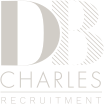According to the latest EY Work Reimagined Survey, 43% of UK workers plan to quit their jobs over the next year. So what do you do if one of those workers happens to be your most valuable employee? The natural inclination for most businesses is a kneejerk buy-back offer. But is this always the best solution?
Today, we’re looking into buy-back offers from both an employer and employee perspective. We’ll cover how to handle this awkward situation and why prevention is usually better than cure.
What Is Buy-Back?
A buy-back is when an employer offers a resigning employee more money in an attempt to get them to stay. Sometimes, benefits can be on the table instead (or as well).
In an age where job vacancies are at a record high and workers are more in demand than ever, buy-backs are becoming increasingly common. Companies suddenly find themselves about to lose an in-demand employee and facing the costs that come with recruiting and training a new hire. In an attempt to avoid all the hassle and expense, bosses counter the resignation with an offer of a higher salary.
But doing so puts both parties in a very awkward situation. The employee may be left wondering why they weren’t valued so highly in the first place. And the employer is left paying more for a worker they know doesn’t want to be there.
How to Handle Buy-Back as a Business
The best course for your business is to avoid a buy-back situation altogether. Studies have shown that the majority of employees who accept a buy-back offer still go on to quit within a year. That’s because money is rarely the only reason a worker wants to leave (otherwise they’d just ask for a pay rise). So a buy-back offer is usually a small plaster on a large wound — a temporary solution to a bigger problem.
How do you make sure you don’t find yourself in a buy-back situation? Staff retention is key. Make sure your team feels valued from the outset, so you don’t have to convince them further down the line.
Of course, resignations are sometimes unavoidable. It’s also often easier and cheaper to offer an employee a pay rise than it is to go through the whole recruitment process again. Here’s how to handle a buy-back if you don’t have any other choice:
- Understand why the situation is happening — Offering a resigning worker more money won’t prevent them from leaving in the future. You need to understand why your employee is unhappy.
- Address issues that have been raised — Of course, understanding alone isn’t enough. You also need to ensure that your employee’s concerns are actually dealt with.
- Be prepared for others to follow — If you decide to buy back an employee, can you cope if other team members follow suit? You may be able to afford one salary increase, but can you afford several?
- Work out if buy-back is really the best solution — Take all of your expenses into consideration. A buy-back may cost you more than one pay rise. But hiring and training a new employee can cost upwards of £4000 and nearly 30 days. Running the numbers should give you your answer.
How to Handle Buy-Back as an Employee
Being offered a pay rise is usually a reason to celebrate. But does that mean you should always accept a buy-back from your workplace? Here are some things to consider:
- Why do you want to leave? — If you want to quit for a higher salary elsewhere, a buy-back could be the best solution. But if there are deeper problems at work, you need to consider whether more money is enough to make the situation tolerable.
- Will things really change? — If your employer didn’t value you before, will they really value you going forward? Assess whether the company is truly committed to change, or if they’re just offering you more money out of panic.
- Think about your future at the company — Post-buy-back can be an awkward time. Other team members might feel resentful of your new salary or the fact that you wanted to leave. Managers may also overlook you for upcoming promotions since you’ve already had a pay rise. Make sure the future is clearly outlined by your employer so you understand what’s really on the table.
Whatever You Decide, DB Charles Can Help
Are you an employer who’s decided buy-back won’t work for your company? Or are you an employee who’s sticking to their guns? DB Charles is experienced and skilled in matching the right candidate with the right role. If you’re a business, we can find you the best talent to fill any gaps in your team. If you’re a candidate, we can help you find an employer that truly values you. Sound good? Let’s talk.












